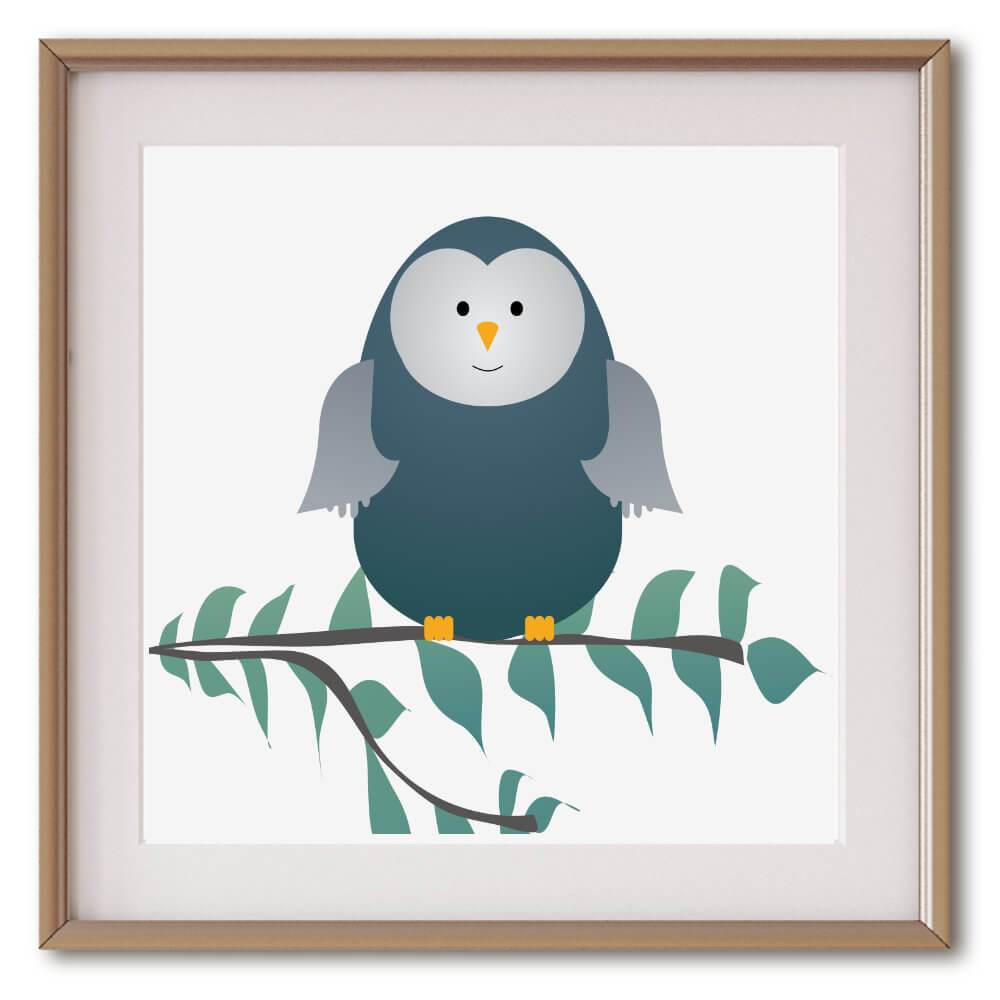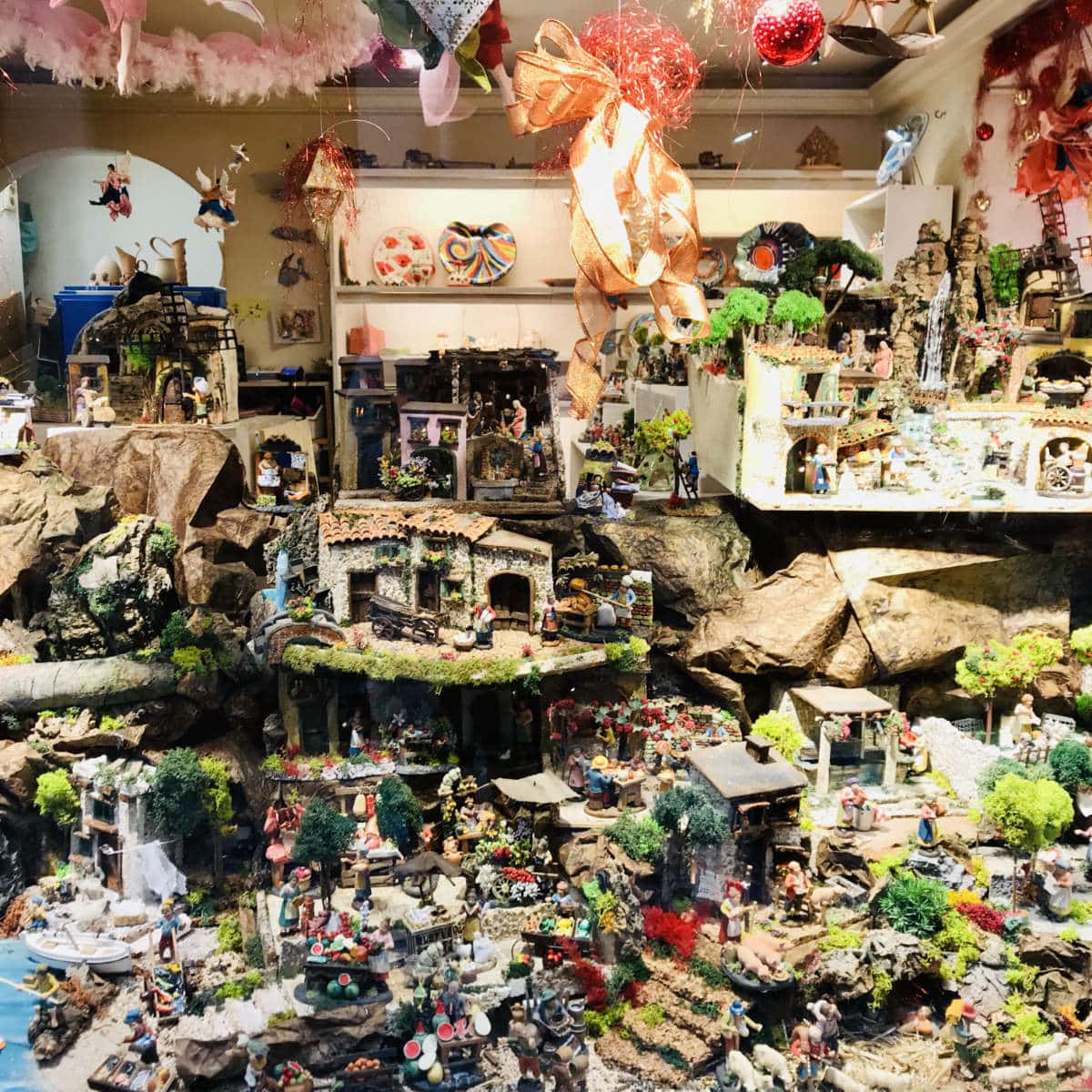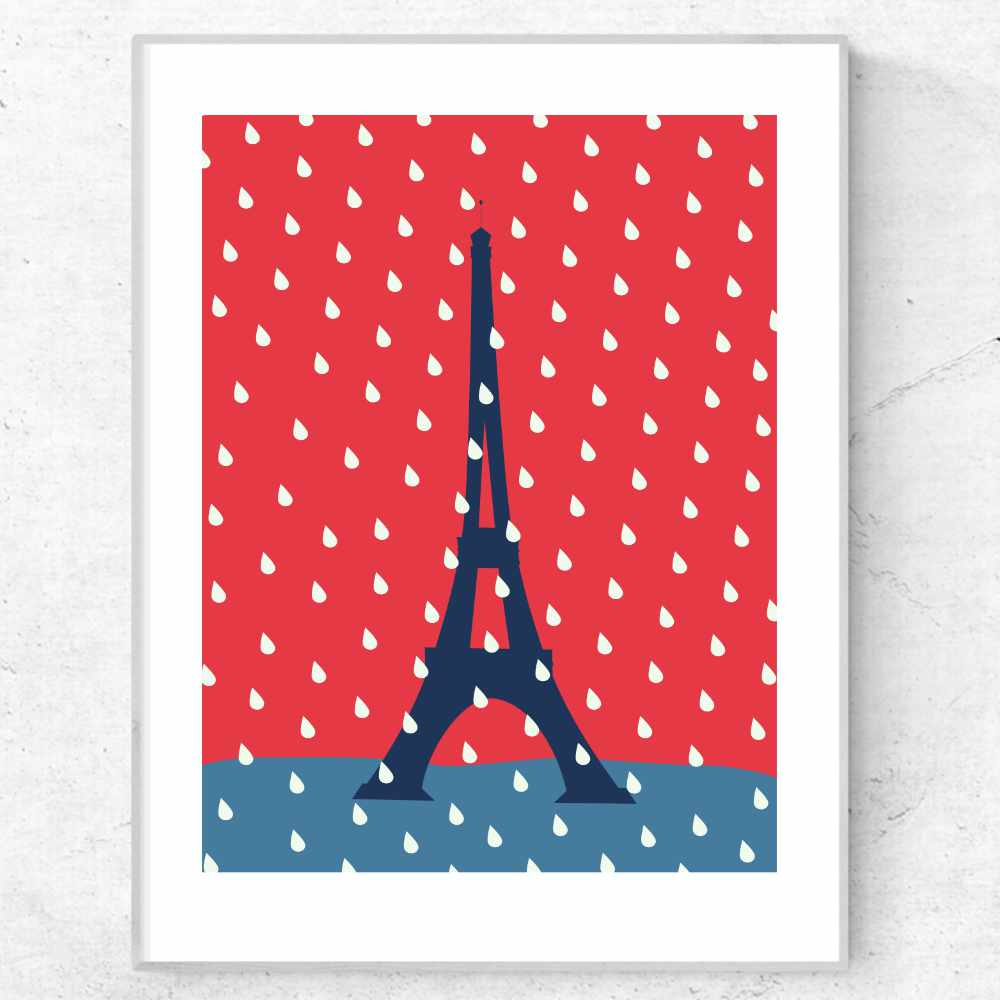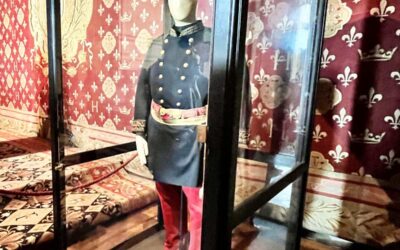If you are trying to instil your children with a love of the French language and to improve your French, there is no better place to start than French poetry. No, poetry is not just for adults.
In France, poetry is a very important part of the culture, and that emphasis starts early in the French education system. Children are taught to enjoy poetry in the classroom and it is a big part of the scholarly curriculum. It is considered an art form, using aesthetic and rhythmic language to evoke meaning and emotion.
Graduating from lullabies and nursery rhymes to kids’ songs and poetry, French kids are expected to memorize short poems and be able to recite them in front of the whole class. Easier poems are chosen in maternelle (preschool), while the serious stuff begins in CP (meaning “Grade 1” in France).
In addition, there are poetry competitions, similar to the spelling bees that are quite popular in North America, starting in primary school.
All this to say, classic French poetry is considered part of the heritage, to be encouraged, embraced, and passed forward to the next generation. And with that, here are the best French poems for kids with English translation, that both children and parents will enjoy. Allons-y!
- 1. Sur le chemin de l'école – Véronique Colombé
- 2. Bonne Année – Rosemonde Gérard
- 3. La Tour Eiffel – Maurice Carême
- 4. Janvier – Alain Bosquet
- 5. Le Muguet – Robert Desnos
- 6. À sept ans – Anne Sylvestre
- 7. Un enfant a dit – Raymond Queneau
- 8. La nuit magique de Noël – Clement Clarke Moore
- 9. À notre mère – Victor Hugo
- 10. Bonheur – Odette Chevalier
- 11. Mon papa chéri – Anonymous
- 12. Bonne Fête Papa – Anonymous
1. Sur le chemin de l’école – Véronique Colombé
As far as French poems go, sur le chemin is a classic for kindgarten and primary school kids. I was quite amazed when my little 3.5 year old came home and started spontaneously reciting this poem, just a couple weeks into the new school year. (Schooling starts early in France!)
It meant to encourage small children to love school, and appreciate learning.
| French Poem | English Translation |
|---|---|
| Sur le chemin de l’école, Les crayons de couleur Sautent du cartable Pour dessiner des fleurs. | On the way to school, The color pencils Jump out of the satchel To draw flowers. |
| Les lettres font la fête Debout sur les cahiers, Elles chantent à tue-tête L’alphabet des écoliers. | Letters celebrate Standing on the notebooks, They sing at the top of their lungs The alphabet for schoolchildren. |
| Ciseaux et gommes Sèment la zizanie, Ils laissent sur la route Tout un tas de confettis. | Scissors and erasers Sow discord, They leave on the road A whole lot of confetti. |
| Entends-tu, ce matin, Le chahut sur le chemin ? C’est la rentrée qui revient ! | Do you hear this morning The heckling on the way? Back to school is back! |

2. Bonne Année – Rosemonde Gérard
If Sur le chemin is for the start of the school year, Bonne année is for the start of the new year, wishing everyone much love and luck.
| French Poem | English Translation |
|---|---|
| Bonne année à toutes les choses, Au monde, à la mer, aux forêts, Bonne année à toutes les roses, Que l’hiver prépare en secret. | Happy New Year to all things, To the world, to the sea, to the forests, Happy New Year to all roses, Let winter prepare in secret. |
| Bonne année à tous ceux qui m’aiment, Et qui m’entendent ici-bas, Et bonne année aussi, quand même, A tous ceux qui ne m’aiment pas. | Happy New Year to all who love me, And who hear me down here, And happy new year too, anyway, To all those who don’t love me. |
3. La Tour Eiffel – Maurice Carême
A wonderful poem many French children learn in primary school is Maurice Carême’s La Tour Eiffel. Carême is Belgian not a French poet, but it remains a lovely poem about Paris nonetheless.
| French Poem | English Translation |
|---|---|
| Mais oui, je suis une girafe, M’a raconté la tour Eiffel. Et si ma tête est dans le ciel, C’est pour mieux brouter les nuages, Car ils me rendent éternelle. | But yes, I am a giraffe, Told me about the Eiffel Tower. And if my head is in the sky, It is to better graze the clouds, Because they make me eternal. |
| Mais j’ai quatre pieds bien assis Dans une courbe de la Seine. On ne s’ennuie pas à Paris : Les femmes, comme des phalènes, Les hommes, comme des fourmis, | But I have four feet well seated In a curve of the Seine. You never get bored in Paris: The women, like moths, Men, like ants, |
| Glissent sans fin entre mes jambes Et les plus fous, les plus ingambes Montent et descendent le long De mon cou comme des frelons La nuit, je lèche les étoiles. | Slip endlessly between my legs And the wildest, the wildest Up and down along From my neck like hornets At night, I lick the stars. |
| Et si l’on m’aperçoit de loin, C’est que très souvent, j’en avale Une sans avoir l’air de rien. | And if you see me from afar, It’s that very often, I swallow it One without looking like anything. |
4. Janvier – Alain Bosquet
The French poem Janvier by Alain Bosquet is meant to teach children the months of the year. It also includes a few references to specific French holidays such as the French Labor day at the start of May.
| French Poem | English Translation |
|---|---|
| Janvier pour dire à l’année “bonjour” Février pour dire à la neige “il faut fondre” Mars pour dire à l’oiseau migrateur “reviens” | January to say “hello” to the year February to tell the snow “we must melt” March to tell the migrating bird “come back” |
| Avril pour dire à la fleur “ouvre-toi” Mai pour dire “ouvriers nos amis” Juin pour dire à la mer “emporte-nous très loin” | April to say to the flower “open up” May to say “workers, our friends” June to say to the sea “take us very far” |
| Juillet pour dire au soleil “c’est ta saison” Août pour dire “l’homme est heureux d’être homme” Septembre pour dire au blé “change-toi en or” | July to say to the sun “this is your season” August to say “humankind is happy to be a human” September to say to the wheat “turn yourself into gold” |
| Octobre pour dire “camarades, la liberté” Novembre pour dire aux arbres “déshabillez-vous” Décembre pour dire à l’année “adieu, bonne chance” Et douze mois de plus par an, pour te dire je t’aime. | October to say “comrades, freedom” November to tell the trees “undress” December to say “goodbye, good luck” to the year And twelve more months a year, to tell you I love you. |
Another interesting note in this poem is the line for October: “Octobre pour dire « camarades, la liberté »”, which actually refers to the 1917 communist revolution in Russia (not the French Revolution), as the poet Alain Bosquet was of Ukranian-Russian origin.
He was born Anatole Bisk, and frenchified his name upon taking French citizenship. As an aside, he was the editor of General Charles de Gaulle’s first newspaper during WWII for the Allied Forces.

5. Le Muguet – Robert Desnos
Going back to Labor day, which doubles as May Day in France, Le Muguet by Robert Desnos celebrates the start of spring. In France, the tradition is for children (and the young at heart) to collect lilies of the valley to present a bouquet to friends and family.
In this poem, the author reminisces being a child and collecting the bouquets (as opposed to buying at a florist!)
| French Poem | English Translation |
|---|---|
| Un bouquet de muguet, Deux bouquets de muguet, Au guet ! Au guet ! Mes amis, il m’en souviendrait, | A bouquet of lilies, Two bouquets of lily of the valley, On the lookout! On the lookout! My friends, I remember it, |
| Chaque printemps au premier Mai. Trois bouquets de muguet, Gai ! Gai ! Au premier Mai, Franc bouquet de muguet. | Every spring on May 1st. Three bouquets of lily of the valley, Cheerful! Cheerful! On May 1st, a generous bouquet of lily of the valley. |
6. À sept ans – Anne Sylvestre
A lovely poem that will make all parents very sentimental is À sept ans by Anne Sylvestre. How quickly they grow up!
| French Poem | English Translation |
|---|---|
| À un an on tombe tout le temps Un petit peu moins à deux ans À trois ans la marche est haute Mais à quatre ans on la saute À cinq ans on cabriole À six ans la grande école | At one year we fall all the time A little less at two years old At three years old the step is high But at four years old we skip it At five years old, we are scampering about At six years old, the big school |
| Mais à sept ans on perd ses dents On les met sous son oreiller Une souris vient les chercher Et vous donne à la place Un jouet que l’on casse. | But at seven you lose your teeth We put them under his pillow A mouse comes to look for them And gives you instead A toy that we break. |
If you are wondering why there is no tooth fairy, it is because French children expect a mouse instead. The mouse is based on a children’s story called La Bonne Petite Souris by Marie-Catherine, Baronne d’Aulnoy, who wrote about a fairy who transforms into a mouse to help a Queen.
7. Un enfant a dit – Raymond Queneau
Raymond Queneau’s Un enfant a dit is a beautiful French poem speaking bien sûr about poetry for kids, and love for the written word.
| French Poem | English Translation |
|---|---|
| Un enfant a dit Je sais des poèmes Un enfant a dit Chsais des poésies | A child said I know poems A child said I know poems (with child’s lisp) |
| Un enfant a dit mon cœur est plein d’elles Un enfant a dit Par cœur ça suffit | A child said my heart is full of them A child said By heart that’s enough |
| Un enfant a dit Ils en savent des choses Un enfant a dit Et tout par écrit | A child said They know things A child said And everything in writing |
| Si l’poète pouvait S’enfuir à tir-d’aile Les enfants voudraient Partir avec lui | If the poet could escape away The children would like to go with him |
8. La nuit magique de Noël – Clement Clarke Moore
For young ones to recite poetry at Christmas, we have La nuit magique de Noël which is an adaptation of Twas the Night Before Christmas by Clement Clarke Moore, translated into French.
| French Poem | English Translation |
|---|---|
| Pendant la nuit de Noël Le père Noël Attrape les étoiles Une à une Il en fait un voile Pour la lune. | During Christmas night Father Christmas catches the stars One by one He makes a veil of it For the moon. |
| Puis il va distribuer Ses jouets par milliers Il va les poser tout en bas des sapins En se faisant aider par ses petits lutins. Ensuite le Père Noël va décrocher la lune | Then he will distribute His toys by the thousands He will put them down at the bottom of the trees By getting help from his little elves. Then Santa Claus will take down the moon |
| Puis les étoiles, une à une, Il les remplace par le soleil. Et les cadeaux émerveillent Les enfants qui se réveillent ! | Then the stars, one by one, He replaces them with the sun. And the gifts will amaze the children who wake up! |
You can listen to more French Christmas songs and read about Christmas traditions in France here.
9. À notre mère – Victor Hugo
The legendary Victor Hugo of (Les Miserables and Hunchback of Notre Dame fame) wrote a short poem about mamans everywhere. A favorite for Mother’s day, this is a lovely little poem to write on a card and bouquet of flowers.
| French Poem | English Translation |
|---|---|
| Oh! l’amour d’une mère! amour que nul n’oublie! Pain merveilleux qu’un Dieu partage et multiplie! | Oh! the love of a mother! love that no one forgets! Wonderful bread that God shares and multiplies! |
| Table toujours servie au paternel foyer ! Chacun en sa part, et tous l’ont tout entier ! | Table always served at the paternal home! Each in his part, and we all have it all! |
And if you are looking for more literary titles, you can find more French books for kids and books for beginners here.
10. Bonheur – Odette Chevalier
Another lovely poem that is part of the curriculum in maternelle is Bonheur (meaning “happiness”) by Odette Chevalier:
| French Poem | English Translation |
|---|---|
| Rester au creux de mon lit douillet, croquer une tartine grillée, passer la journée à jouer, | Stay in the hollow of my cozy bed, bite into a toasted bread, spend the day playing, |
| Recevoir de maman un doux baiser, me blottir dans ses bras et rêver, c’est beaucoup de bonheur qui rayonne dans mon coeur. | Receive a sweet kiss from mom, snuggle up in her arms and dream, it’s a lot of happiness that shines in my heart. |
11. Mon papa chéri – Anonymous
After French poems for moms, we can’t leave out the dads. For the kid who has forgotten to buy his/her dad a birthday or father’s day gift, there is this poem:
| French Poem | English Translation |
|---|---|
| Mon papa chéri, Aujourd’hui c’est ta fête, Quelqu’un me l’a dit, J’aimerais t’offrir, Quelque chose de beau, | My darling daddy, Today is your day Someone told me, I would like to offer you, Something beautiful, |
| Pour te faire plaisir, Voici rien que pour toi, Le plus merveilleux Cadeau qui soit : “Je t’aime papa” | To make you happy, Here is just for you, The most wonderful Gift that is: “I love you dad” |
12. Bonne Fête Papa – Anonymous
And for a Happy Father’s day, we have this little ditty about keeping loved ones close:
| French Poem | English Translation |
|---|---|
| Mon petit cœur a demandé À Monsieur le grand alphabet De lui écrire un mot d’amour Qu’il pourrait garder pour toujours. | My little heart asked To Monsieur the great alphabet To write him a love note That he could keep forever. |
| Monsieur le grand alphabet A pris un P, un A encore un P, encore un A et a écrit le mot PAPA | Mr. the great alphabet Took a P, an A one more P, one more A and wrote the word PAPA |
| Et puis voilà ce qu’il m’a dit : « Voilà pour toi le mot PAPA Ne le perds pas, c’est un trésor, Un grand trésor qui vaut de l’or » | And then this is what he said to me: “Here is the word PAPA for you Don’t lose it, it’s a treasure, A great treasure worth gold “ |
| Alors je l’ai mis dans mon cœur Et je te dis avec bonheur : BONNE FÊTE PAPA ! | So I put it in my heart And I tell you with happiness: HAPPY FATHER’S DAY! |
☞ READ MORE: Best Kids’ Resources for learning French at home

If you enjoyed that article, you can listen to more French songs for kids here, with lyrics and audio. A bientôt!





